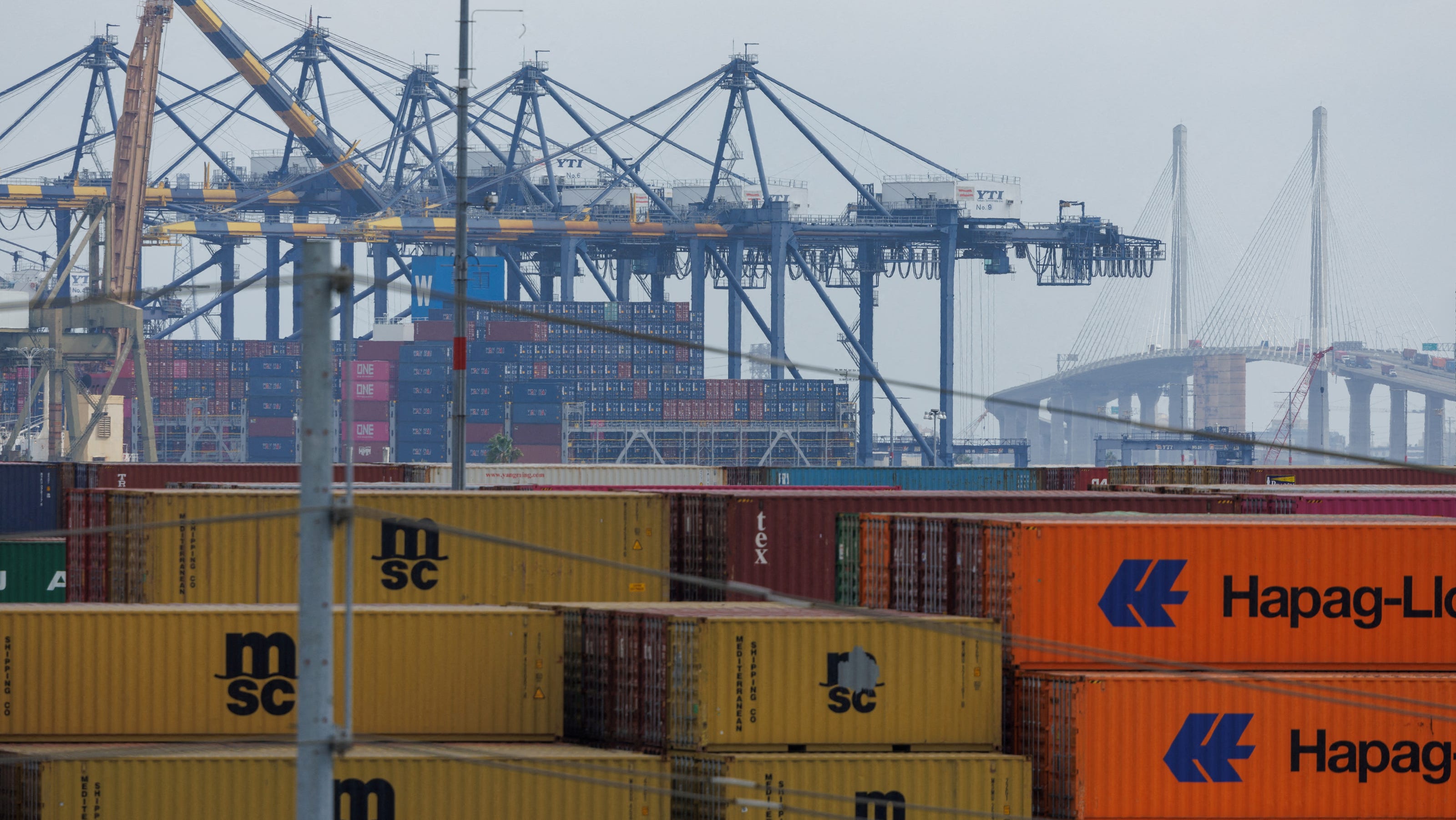Impact Of Trump's Tariff Policy On European Stock Markets: Focus On LVMH

Table of Contents
Understanding Trump's Tariff Strategy and its Targets
Trump's tariff strategy was rooted in protectionist ideals and an attempt to address perceived trade deficits. The rationale was to protect American industries by imposing tariffs on imported goods, forcing companies to source domestically or face higher costs. This approach directly targeted several sectors, including the luxury goods industry, a sector where LVMH holds a dominant position. Specific tariffs were imposed on goods crucial to LVMH's portfolio, such as handbags, wines, and spirits.
- Specific tariff rates imposed: Varied, reaching as high as 25% on certain luxury goods imported from the EU.
- Target countries affected: The European Union was a primary target, along with China and other countries.
- Timeline of tariff implementation: Tariffs were implemented in phases, starting in 2018 and escalating throughout Trump's presidency, creating ongoing uncertainty for businesses like LVMH.
Direct Impact on LVMH's Financial Performance
The implementation of Trump's tariffs had a measurable impact on LVMH's financial performance. Analysis of LVMH's financial reports during and after the tariff imposition reveals notable changes in key metrics. While LVMH, with its global reach and diversified portfolio, showed resilience, the tariffs undeniably created headwinds.
- Quantitative data: While overall sales remained strong, growth rates slowed in certain sectors, particularly those most directly affected by the tariffs. Profit margins were also impacted, though LVMH largely mitigated these effects through strategic pricing adjustments.
- Specific examples of product lines affected: Sales of certain handbags and high-end spirits, heavily reliant on US imports, experienced slower growth compared to other LVMH brands.
- Charts and graphs illustrating financial performance: (Note: This section would ideally include visual data showcasing the impact of the tariffs on LVMH’s key financial indicators.)
Indirect Effects on LVMH and the Broader European Market
The impact of Trump's tariffs extended beyond LVMH's direct exposure. The ripple effect created broader economic consequences across the European market.
- Supply chain disruptions: Tariffs complicated supply chains, forcing companies to reassess sourcing strategies and potentially increasing costs throughout the industry.
- Analysis of consumer behavior changes: Increased prices due to tariffs potentially dampened consumer confidence and spending, especially in the luxury goods sector, creating a downturn in demand for affected brands.
- Correlation between tariff implementation and European market indices: European stock market indices experienced volatility during periods of tariff escalation, demonstrating the broader market impact of trade policy uncertainty. The Euro's exchange rate also fluctuated due to the economic uncertainty.
LVMH's Response Strategies to Mitigate Tariff Impacts
Faced with these challenges, LVMH implemented various strategies to mitigate the negative impact of Trump's tariffs. These responses were crucial to maintaining profitability and investor confidence.
- Specific examples of LVMH's response measures: These included strategic price adjustments, diversification of sourcing to reduce reliance on tariff-affected regions, and potentially increased investment in non-tariff affected regions.
- Assessment of the success of these measures: While LVMH demonstrated resilience, the full impact and long-term success of their mitigative measures might take time to fully assess.
- Discussion of long-term implications for LVMH's business strategy: The experience likely prompted LVMH to refine its global sourcing and risk management strategies to better adapt to future trade uncertainties. This could lead to diversification of both sourcing and markets to minimize future vulnerabilities.
Conclusion: Assessing the Long-Term Effects of Trump's Tariff Policy on LVMH and European Stock Markets
Trump's tariff policy had a demonstrable, albeit complex, impact on LVMH and the European stock market. While LVMH’s strong brand recognition and diverse portfolio allowed it to weather the storm, the direct and indirect effects of these tariffs highlighted the vulnerability of businesses operating in a globalized economy to unpredictable trade policy changes. The long-term consequences include heightened uncertainty for international trade relations and a potential reshaping of supply chains within the luxury goods sector. Businesses and investors must actively monitor global trade developments to anticipate and adapt to similar future events. To gain a more comprehensive understanding of the wider economic consequences, further research into the impact of Trump's tariff policy on other sectors and companies within the European stock market is strongly encouraged.

Featured Posts
-
 Aex In De Plus Terwijl Amerikaanse Beurs Daalt Analyse Van De Markten
May 24, 2025
Aex In De Plus Terwijl Amerikaanse Beurs Daalt Analyse Van De Markten
May 24, 2025 -
 Open Ai And Jony Ive Analyzing The Potential Ai Hardware Acquisition
May 24, 2025
Open Ai And Jony Ive Analyzing The Potential Ai Hardware Acquisition
May 24, 2025 -
 Ferrari Service Centre In Bengaluru What To Expect
May 24, 2025
Ferrari Service Centre In Bengaluru What To Expect
May 24, 2025 -
 Marks And Spencer Suffers 300 Million Loss From Significant Cyber Incident
May 24, 2025
Marks And Spencer Suffers 300 Million Loss From Significant Cyber Incident
May 24, 2025 -
 Get Your Wrestle Mania 41 Tickets And Golden Belts This Memorial Day Weekend
May 24, 2025
Get Your Wrestle Mania 41 Tickets And Golden Belts This Memorial Day Weekend
May 24, 2025
